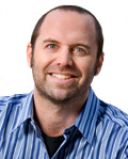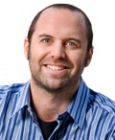Friends
5 Tips to Becoming a Killer Scientist Who Changes the World
And enjoys life on the journey
Posted December 5, 2012

I've been thinking a great deal about how researchers can become better at their craft. Part of their job is to uncover mysteries about the universe. Part of their job is to communicate these ideas to the world. Ignore the latter and your chances of improving the world in some small way becomes miniscule. If you are a scientist, want to become one, live with one, fail to understand them, or are trying to avoid them, this blog post is for you. Its not limited to psychologists. Consider the below to be five tips for being a better thinker and doer.
1. Let passions and curiosity be your compass
What is the modal number of times that a scientific article, book chapter, or book is cited by someone else? Zero. Thats right, zero. Odds are that your entire career will not make a dent into understanding the human condition and you will be forgotten within five years after dying. Mourn for 15 minutes and get back to work in areas that you are truly passionate about.
I'm always amazed at how many movies hit the theatres that are neither interesting, funny, or entertaining (doesn't Tim Burton have any friends that give candid feedback?). Similar to movies and books, there are mind numbing, useless research questions. But what makes a good research question:
- the answer should not be obvious in advance. Yes, people in a happy mood tend to be nice. Yes, if you have a psychological disorder you are likely to have other mental health problems. Yes, children with externalizing disorders such as ADHD have parents who are stressed out. Now that you have access to these profound insights, study something else.
- the answer should address a gap in the literature. Nobody has studied whether lesbian great grandmothers experience greater pride than other women when they beat their angry birds high score but then again, nobody gives a #$@!. Novelty is not synonymous with addressing a gap in the literature.
- the answer should be useful. It might help us understand the world a bit better or it might directly improve the way we help ameliorate mental and physical disorders or improve people's quality of life.
I am reminded of the quote by Kahlil Gibran, "Work at its best is love made visible." Remember what drew you to be a scientist. Don't look at public opinion polls about what people are studying. Focus on activities that ignite your passion. Don't study areas because they are hot and sexy (mindfulness and social neuroscience are the rage right now). Ask questions that ignite your passion. You can’t manufacture passion or “motivate” people to feel passionate. If you aren't excited about starting Monday with fresh time to play with your ideas, you might be far afield from your passions.
2. Impact is Everything
When I mentor students or consult with other scientists or organizations, I ask them a single question to determine whether they are doing something important: "If everything worked out exactly as expected what would the field learn?" If its hard to answer that question, its time for a period of reflection. Stop the busy work and start thinking carefully about what you are doing and why. Return to Tip #1.
Sometimes I think the entire career of science is similar to walking into a Las Vegas casino. You transform your hard earned money into plastic chips and bet two hours worth of wages every 15 seconds on the blackjack tables. You forget that those chips reflect real money and losses mean no tune-up for your mountain bike, no romantic dinners while a babysitter watches your kid, and a family vacation to visit the capitol building in Richmond, Virginia instead of the psychedelic facade of Casa Batlló in Barcelona.
Similar to Las Vegas, scientists get caught praying to false idols. Their false idols are the number of peer-reviewed publications. Their curriculum vitae becomes synonymous with their sense of self. Let me tell you a secret: It is more impactful to get your work featured in an article in Parade magazine than the top journal in your field. Hang around scientists who understand this principle.
As my friend Gretchen Rubin is fond of saying, "Ubiquity is the new exclusivity." If you want to make an impact in a particular area, be everywhere where that area is being discussed and used. Nobody can hear you scream in cyberspace, so travel incessantly and leave breadcrumbs for people to follow. Those ideas of yours will become tighter, stronger, and enduring with new modes of expression.
3. Be James Bond (impact part II)
Show your stuff in a way that can be understood by teenagers. Think like a human (not an academic professor in a tweed suit with elbow pads and embroidered handkerchiefs).
Be an exceptional presenter. How? Concrete. Sticky. Stories. I gave a workshop to a conference table of Air Force generals. I was told that they like the term "resilience" and are turned off by fluffy language about happiness. This was a golden tip and one reason why I always talk to organizations before I create talks or workshops. I started off as one of them, using resilience as my entry point. And then I moved to data by the late Chris Peterson, one of the best psychologists in the world on the nature of psychological strengths. I asked them, of 24 universal psychological strengths, which best predicts leadership abilities in the military? Everyone had an answer. Courage. Perseverance. Fairness. Kindness. Open-mindedness. Decisiveness. All of them were wrong. The answer happens to be the capacity to love. And from this, we were able to move into the softer territory that the military has ignored for far too long.
Early in my career I was obsessed with quality control. Any idea about improving people's lives had to be based on high quality empirical research. If not, I'd be on the prowl trying to neutralize your influence. I was wrong. I've come to realize the importance of taking a scientifically informed approach instead of an evidence based approach. The science will never be sufficient for working with people in the real-world. How many studies do you need to be convinced that expressing your gratitude will likely benefit and strengthen relationships with friends, family, and co-workers? Do I need a study with entrepreneurs before telling a group of them how it will be useful in their business relationships? Aim for scientifically informed work.
Don't fall for the hype. There are too many scientific journals and too many scientific articles and most of them tell us nothing. Peer-reviewed published articles does not mean good science. It takes hard work to separate the wheat from chaff. This means that you have to keep abreast of the latest findings. This means that you have to carefully read the original work and not trust second hand retellings. This means that you have to be able to explain the science clearly if someone asks for a justification for what you say or do. Don't simply let people challenge you, give them freedom to do nothing but challenge you. Prepare, know your shit, be practical, and honor the audience.
Forget about wowing people with your impressive intellect and content, focus on what the audience wants. They don't care about statistical significance. They want their 20 minutes or half day with you to impact their lives in some way. Give them something concrete to talk about and do. Change their perspective. And here's something that I can't believe needs to be said but it does: as a scientist, you are allowed to be playful, irreverent, and entertaining when you speak. Somber objectivity in the lab does not have to be replicated on stage. Somehow you earned the attention of a crowd, do something cool with this opportunity. To do so, you need to think from the audience's perspective.
4. Create Strong Partnerships
Choose good collaborators who surprise you at how quickly they get things done. Busting your ass is often more visible than intellect. Retain people that ensure you stay humble. Be generous by always giving more than you take. Trust is everything so get to a point where you can share your hand and see someone else's. Get rid of toxic characters and energy vampires who steal your most precious commodity- time and energy.
Complementarity is righteous. My favorite collaborators all have strengths and talents that I don't possess. Patrick McKnight is a methodological and statistical machine. Robert Biswas-Diener is the most creative person I know and easily holds court with his storytelling (everywhere he goes). Joseph Ciarrochi is a relentless ball of manic energy with a soft, gooey interior. I've collected quite a few others and much of my success is due to them and my life is infused with profound joy and meaning because of them.
Look for mentors who you would want to drink scotch with on a veranda at 1am. Its something I look for in students.
Find non zero-sum games. Writing a blog post for somebody else's website. Letting a journalist sit in on your class and interview you over the course of several weeks.
The notion of the lone genius has been debunked. You will do better work with someone else so suck it up and share the glory.
5. Create Meaningful Time
There's always something to do, thus its never an excuse. Think of work in 15-minute intervals. With this perspective, you can always find time to write. Schedule writing or creative sessions into your calendar. Just like a doctor appointment, don't miss it. Never miss a day. Never feel guilty. Then spend time with close friends and family without the work albatross. Get this book for simple secrets to being hyper-productive: How to Write a Lot. Its not complicated. Discipline slowly accumulates into major accomplishments.
Five more tips are coming soon.
Pass this on so that we increase the rate and spread of good ideas.
***for those interested, here is my related recent TEDx Talk on "Becoming a Mad Scientist with Your Life"*****




